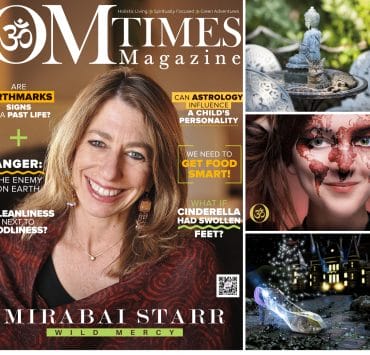Mirabai Starr: Wisdom of the Women Mystics

SANDIE SEDGBEER: Tragedy and trauma are common themes in the lives of the mystics you write about. John of the Cross was imprisoned for his attempts to reform the church. Saint Francis of Assisi was a prisoner of war. Saint Teresa of Avila suffered illness, hardship, and persecution by the Inquisition, and Julian of Norwich received her visions during significant illness, believing she was on her death bed. Tragedy and trauma are such powerful triggers for transformation – but why is that? Why do we have to plumb the depths before our eyes can truly open?
MIRABAI STARR: I have no idea. I think the question underlying that is, what do we do with it? It has always been affirmed that a human condition is a place that involves great suffering and challenge and that how we respond is the test of our true humanity.
For me, it was the loss of a child when my first book, the translation of Dark Night of the Soul by Saint John of the Cross, came out. I was 40, and the very day that book came into the world, my 14-year-old daughter Jenny was killed in a car accident. And I entered into the heart of that fire that I had been studying about and practicing and encountering through spiritual methodologies for decades. At that moment, in which Jenny’s death coincided with the release into the world of these teachings on the transformational power of great darkness and suffering, I had to fully surrender any ideas I had on what spirituality was. What mystical union was? What God was. What my life as a human being, as a woman, as a mother was supposed to be about, and that transfiguration of my soul was not some sudden enlightenment experience where I used to be a shmuck. Now I was this great wisdom generator. It was a very messy flow, a gradual process of fully inhabiting my own humanity, and in doing so, taking my rightful place in the web of inter-being to which I suddenly realized I belong. In that surrender, that gradual, somewhat chaotic, up and down process of coming home to my human heart, the world of the soul became bigger and more accessible.
SANDIE SEDGBEER: Before we close, I want to quickly touch on the part of your book where you say, ‘So where do I find the divine masculine?’ And, of course, you found it in your husband. So often, we are looking beyond the men we know. We’re looking at all of their masculine differences and the things that mark them out as not us, and we don’t see the divine masculine within them. Was that a surprise to you when you came back to that and saw the divine masculine in your husband?
MIRABAI STARR: No, not all. I’ve seen the divine masculine in him from the day I met him. And there are so many men in my life, and other gendered people as well, who are just luminaries for me of the antidote to the toxic masculinity that I am resisting in my work right now. That I’m calling out. So, it’s not that I am condemning all men as being the source of the problem, far from it. I feel that I have so many allies in men and other gendered people right now who are just as interested in unlocking the door to the feminine heart that has also imprisoned men. So they’re grateful, and they’re involved in this process, and they’re delighted to find out about all these women mystics; that they have other places to find their own feminine heart in this world besides the exclusive boy’s club that has characterized most of the religious institutions, including the ones that many of us consider being alternatives because they’re Eastern. Hinduism and Buddhism are supposed to be exempt from that kind of misogyny and patriarchy, but they’re not.
SANDIE SEDGBEER: There is such a big conversation here; I would really love to continue it at some point. But I’m going to have to close with this thought: You write that Julian of Norwich has a message for today’s readers in that ‘she reveals the feminine face of the divine and reminds us to see God there. That all our failings are an opportunity to learn and grow. That they should be honored, but not dwelled upon. That God’s love has nothing to do with love and retribution and everything to do with love and compassion and, most of all, despite all appearances, all is well.’ As you look upon the world as it is right now, in the middle of this incredible situation that we’ve never experienced before, is all well?
MIRABAI STARR: All is well, and that includes that which is not well, and we need to be in our courageous feminine hearts and make space for all of it. To not check out of it and bypass it for spiritual method, but to allow our hearts to break open in response to the pain of the world.
A veteran broadcaster, author, and media consultant, Sandie Sedgbeer brings her incisive interviewing style to a brand new series of radio programs, What Is Going OM on OMTimes Radio, showcasing the world’s leading thinkers, scientists, authors, educators and parenting experts whose ideas are at the cutting edge. A professional journalist who cut her teeth in the ultra-competitive world of British newspapers and magazines, Sandie has interviewed a wide range of personalities from authors, scientists, celebrities, spiritual teachers, and politicians.





